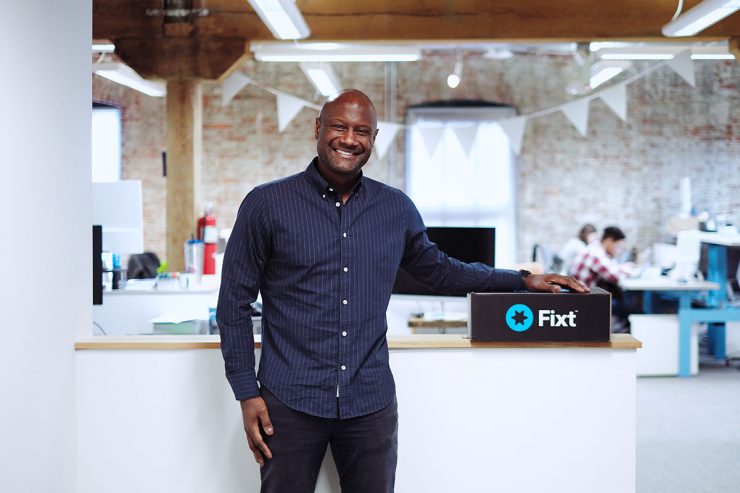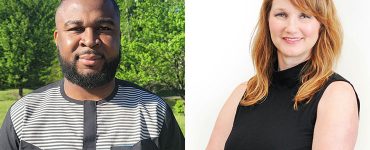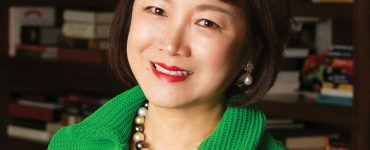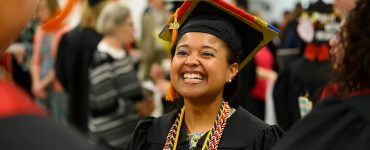Recognized as one of Baltimore’s “40 Under 40” business leaders by the Baltimore Business Journal and an Entrepreneur of the Year finalist by Ernst & Young, Luke Cooper is a lawyer, serial entrepreneur, speaker, author, and trusted advisor to business, academic, and government leaders.
After raising $7 million, he became the first Black founder in Baltimore to lead a company to a successful “tech exit,” capturing 11x revenues for Fixt, Inc., an on-demand mobile device support and repair company that allows customers to schedule local and onsite repairs of mobile devices. It was acquired by Assurant in 2020.
Impressively, he’s done it twice. Cooper is recognized as a prominent voice advocating for more equitable participation of underrepresented communities in entrepreneurship. His latest venture — No Mud, No Magic — seeks to bridge the gap between high-potential Black startup founders and technical training, investors, and merger-and-acquisition options.
In addition to a JD from Syracuse University, Cooper holds an MBA degree from Babson College and was a scholarship basketball player at Adelphi University. He has been a University of Maryland, Baltimore (UMB) Foundation trustee since 2019.
SPOTLIGHT: Can you tell us about your experiences as a tech entrepreneur? What challenges did you face and how did you overcome them?
LUKE COOPER: There are so many things that come with a tech startup — raising money, building a team — but I think culture dictates everything, and it is probably the most important thing you can focus on as a founder. At various times during our journey, we were met with things that challenged our cultural foundation. For example, we decided to speed up our product development efforts, so we hired a six-person team from a different company who had previously worked together. They only cared about quick, easy revenue; they thought about teamwork differently; and they weren’t grounded in our mission or core values, making it tough to merge our cultures. Culture unified each team separately. We learned how important protecting your culture is when hiring new people or working with outside teams.
How has education shaped your journey?
It has given me a wider lens to see the playing field as I navigate the daily activities related to building a company. Lawyers are a lot like engineers, contracts are like code, and the ability to think that way is important when you’re trying to create a product for a market. In creating a thing that wasn’t there before, those analytical skills allow you to draw useful distinctions between existing products and what you want to build.
However, education is much broader than just schools and universities. We stopped looking at education as a critical factor for success when hiring and started looking at things like demonstrations of autonomous leadership, data-driven decision-making, and a matching of values. This shaped up nicely for us, and in the end 50 percent of our workforce was Black and Latinx.
What do you find special about Baltimore as a place to start a business?
Baltimore is pretty low burn. It’s the kind of place where you can get off the ground really quickly. I come from New York, which is a tough place to do anything. It’s so competitive, and while I love competition, I want to thrive, and in New York it was very difficult to even figure out how to start a company. Baltimore has a lot of the critical elements — university assets, the talent is here, and I think it’s an evolving community that can take a leadership position on guiding companies, organizations, and institutions to take more equitable actions. Baltimore holds that moral ground, just given the history of the city and what it’s been through and what it represents, from Freddie Gray to Thurgood Marshall.
Why is fostering an entrepreneurial spirit in students, particularly UMB students, important to you?
Because the world needs it. There is no dearth of ideas, but there are few people who can paint clouds and make it rain; UMB students are well-equipped to do both. They are getting the training in an incredible environment and they have great ideas. When those ideas take shape and get off the ground, they can reform society for the better.
How can emerging entrepreneurs make diversity, equity, and inclusion (DEI) a central tenant of their business plan, regardless of industry?
You make it a core value. I think a lot of people misconstrue what DEI really is. Yes, it focuses on equitable opportunities across teams, genders, and ethnicities. Yes, it means diversifying the ethnic makeups of your teams, but it also means diversity of thought, background, experience, and age. It also means making your internal culture the foundation of who the company is. If you make inclusion and equity a core feature of your business and weave it into everything you do, it will naturally lead to more diverse outcomes.
It is well-documented over many years and many industries that companies that have more diversity perform better financially. At Fixt, by the time we exited, 50 percent of our workforce was Black/Latinx, and half of our leadership team was led by Black males. We were intentional about that, and it led us to an 11x outcome.
What are the biggest challenges facing student entrepreneurs today and what is your advice to them?
Myopia. To some extent students are in this predefined ecosystem that may prevent them from seeing an accurate understanding of the problem. They fall in love with their solution as opposed to treating it like an experiment. We say nothing interesting ever happens at the office. You have to get out of the office and gain more proximity to the problems you are trying to solve.
Why do you give to UMB?
Because I believe in UMB’s commitment to Baltimore. I believe it to be a crucial vehicle for delivering not only much-needed resources, but also hope. It’s the young doctors, dentists, nurses, social workers, lawyers, pharmacists, etc., who walk across Martin Luther King Jr. Boulevard and the young Black boys and girls who can see that future for themselves. It helps open their eyes and make that a real possibility for youth in West Baltimore. That’s why I’m committed.
“When I think about what’s achievable for Baltimore, I think about all the talent that lives here. We can unlock so much more potential for UMB and Baltimore by empowering the communities surrounding the University. If we can drive connections between what have been historically extractive institutions and evolve into an inclusive environment, we can produce so much more in Baltimore.”






